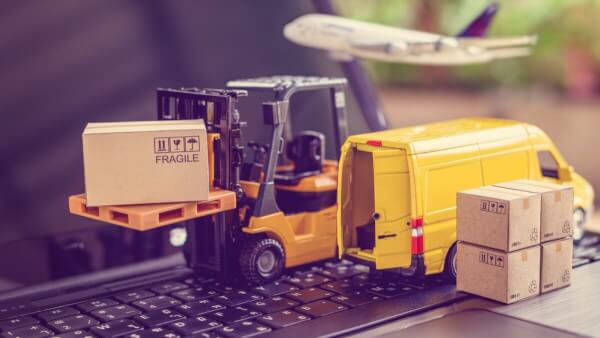Moving to Ireland from Australia
Looking to move to Ireland from Australia? We'll fill you in on the travel and visa requirements, healthcare, cost of living, pros, cons and much more.

Want to receive money from a friend or relative abroad, or get paid by a client or business based in another country? This guide is just for you.
Here, we’ll cover everything you need to know to receive money from overseas. This includes the different ways you can receive your payment, how long it takes and the different international transfer services you can choose from.
For example, open a free Wise multi-currency account and you can receive international payments for free. That’s right – no fees at all, just fast, reliable payments from all over the world.
We’ll look at this in more detail later. First, let’s focus on the general process for receiving money from overseas.
There are a few different options for receiving money from overseas. Your sender can use an international money transfer service, make a bank-to-bank transfer or use an international money order (similar to a cheque).
Depending which method is used, you may be able to choose how to collect your money too. For example, you can pick it up in cash or have it sent directly to your bank account.
In this guide, we’ll focus on receiving money in your bank account. Here’s how it works:
One of the simplest ways to receive money from abroad is to have it deposited in your local bank account. By local, we’re talking about a bank account in your name in the country where you live. It takes between 1-5 working days², and you don’t need to do a thing to receive the money in your account.
Payments can be sent to your bank account either from the sender’s bank, or using a money transfer service. When a sending bank is involved, the payment will usually be sent via the SWIFT worldwide bank network³.
With SWIFT transfers, the payment is unlikely to go directly from the sender’s bank to yours. It’s more common for a number of intermediary banks to be involved. Think of it like using connecting flights to reach a destination because a direct flight isn’t available.
Unfortunately, these transfers can take longer and cost more, as all the intermediary banks add their own fees into the mix.
On top of this, each intermediary bank could apply their currency exchange mark-up, meaning that more of the original payment is lost along the way.
The sender will often cover these fees, but not always. You could end up having to cough up for some or all of the transfer fees and costs yourself.
Luckily, there is a cheaper alternative to bank-to-bank transfers and the SWIFT system.
Instead of receiving money directly into your local bank account, you can instead receive it with local bank details. Confused? It’s actually quite simple.
Money transfer specialists like Wise use a peer-to-peer system, which uses smart technology to connect local bank accounts around the world.
Open a multi-currency account with Wise and you’ll automatically get bank details that are local to the currency you’ll be paid in⁴. You can give the sender those details, and the money will be sent to your Wise account instead of your bank.
So, for example, if your sender is in the UK and you’re in Australia, you’ll give them your UK bank details from your Wise account. They’ll use these to pay you in GBP like a local. The best part? There are no fees involved with this peer-to-peer method, and it can sometimes even be quicker than using the bank and the SWIFT system.
If you’d like to swerve high bank fees for receiving money from overseas, there are a couple of alternative services you can choose from.
Peer-to-peer transfers are yet to take off in Australia so there aren’t heaps of options, but these are the main players you should know about.
Wise
Wise is one of the most popular peer-to-peer services for low cost international transfers. As we’ve touched on above, if you have a Wise borderless account, you can receive money for free by providing the sender with local bank details.
Once the money arrives, you can convert it into another currency or withdraw to your bank account for tiny fees. You’ll always get the real exchange rate, with no costly mark-up on top. There’s also the option of sending money to someone else, or spending in the local currency with your Wise Platinum debit MasterCard.
Another peer-to-peer money transfer service, CurrencyFair offers bank-beating exchange rates and fast transfers. The platform is pretty easy to use and there are often deals available for your first few transfers. However, at the moment the number of currencies is limited to just over 15.
And that’s pretty much everything you need to know to receive money from overseas. Who knew there were better and cheaper ways to do it than simply using your bank?
Sources used:
Sources checked on 1-October 2020.
*Please see terms of use and product availability for your region or visit Wise fees and pricing for the most up to date pricing and fee information.
This publication is provided for general information purposes and does not constitute legal, tax or other professional advice from Wise Payments Limited or its subsidiaries and its affiliates, and it is not intended as a substitute for obtaining advice from a financial advisor or any other professional.
We make no representations, warranties or guarantees, whether expressed or implied, that the content in the publication is accurate, complete or up to date.

Looking to move to Ireland from Australia? We'll fill you in on the travel and visa requirements, healthcare, cost of living, pros, cons and much more.

Looking to move to Dubai UAE from Australia? We'll fill you in on the travel and visa requirements, healthcare, cost of living, pros, cons and much more.

Looking to move to Italy from Australia? We'll fill you in on the travel and visa requirements, healthcare, cost of living, pros, cons and much more.

Discover how international moving companies in Australia operate, from services offered to logistics, ensuring a smooth relocation to your new home abroad.

Relaxing by the Pacific or Atlantic oceans, high altitude skiing across alpine country, trek through the desert or visit stunning national parks such as...

The UK is one of the most popular destinations that Aussies, and other foreign nationals alike flock to see Buckingham palace, the Scottish highlands or the...